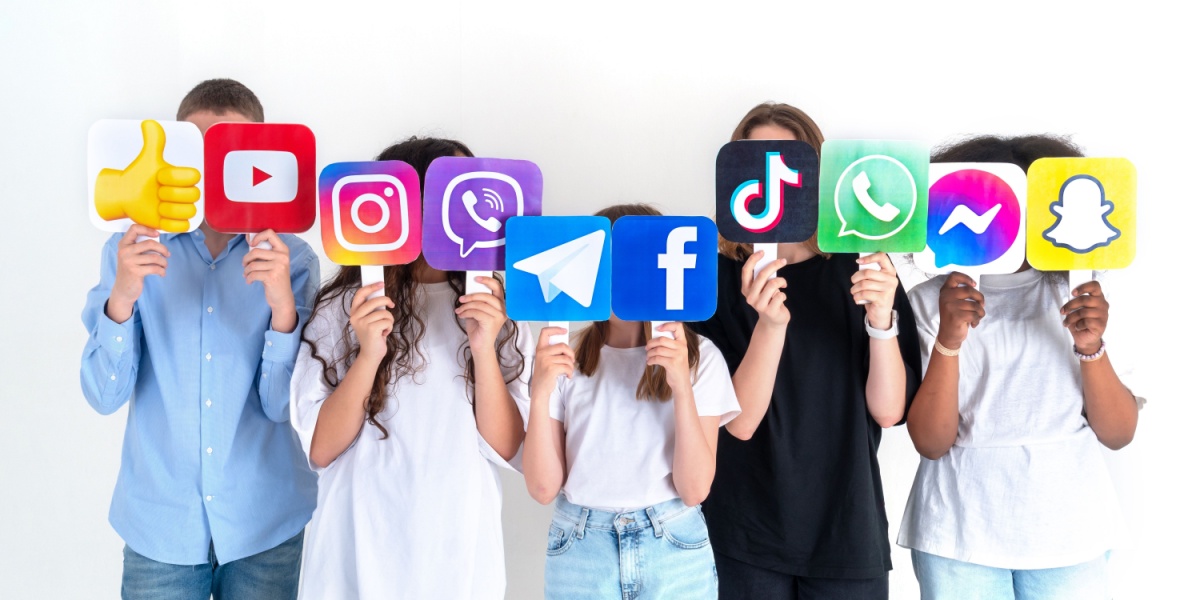A significant percentage of adolescents and young people use social media daily and are being exposed to its negative effects, including impacts on mental health and safety. New laws around social media use are taking effect in the US to protect young people, with Florida leading these changes.

Florida’s new policies for social media and teens
A new law is being implemented in Florida that bans the use of social media sites by people under the age of 16. The law states that sites such as TikTok, Instagram, and X will be prohibited from creating new user profiles for people under 14, and pre-existing profiles within this age group should be terminated. People aged 14 and 15 will require parental consent to create or continue to use social media profiles.
This means that people creating new profiles will be subjected to age verifications. The law has been put in place to help prevent teens from being exposed to pornographic or harmful content. It is intended to protect young people from the potential harms of social media, including the impact on their mental health, such as developing a social media process addiction.[1][2]
Florida’s phone ban in schools
Florida has already implemented a ban on cell phones within school classrooms, which has been in effect since 2023. Florida was the first US state to enact this ban, with some districts banning cell phones only in classrooms, and others, such as Broward County, banning them throughout the entire school day.[3][4]
This has reportedly led to students appearing to engage in more conversation with one another and being more engaged in class. However, some students have reported feeling more stressed without access to their phones.[4]
What are the legal ramifications?
The law relating to social media use means that any social media site violating age restrictions will face fines or penalties enacted by the Department of Legal Affairs.[1]
However, there is some argument that these rules violate First Amendment rights as people will be subjected to verifications before being permitted their free speech. Although the bill has been passed, a court hearing is due to be held in February to determine whether the law will be enforced, thereby blocking its implementation until a decision has been made.[5]
The impact of social media on teens and young people
Social media and internet use can have both positive and negative effects on teenagers and young people, depending on how often and what types of sites they use. Research on this topic has increased in recent years, though actionable data remains inconclusive. [6]
- Some of the potentially positive effects of social media when used in an ethical and protected manner include:[6][7]
- Ability to access helpful information relating to health and well-being
- Ability to communicate with others, particularly within specific communities
- Sharing of information and content
- Improving self-esteem
However, social media use can lead to negative impacts, particularly if it is excessive or uncontrolled. One survey shows that 62% of teens use social media every day, while another shows that 19% use YouTube ‘almost constantly’.
Negative effects of social media use can include: [6][7]
- Exposure to cyberbullying or in-person altercations following interactions online
- Exposure to online predatory behaviors, such as exploitation, trafficking, or sharing of personal information
- Intentional or accidental viewing of inappropriate content, such as violence, self-harm, or pornography
- Increased risk of symptoms of depression, anxiety, or stress
- Impaired academic, personal, or social functioning
- Decline in sleep quality and quantity
How reduced social media can improve mental health
By reducing social media use, people may experience improvements in mental health such as: [6]
- Better sleep hygiene and quality, thus improving mood, focus, and functioning
- Reduced access to potentially distressing content
- Reduced risk of exposure to material that shows or encourages self-harm
- Reduced need to use social media for gratification and validation, thereby improving self-esteem and distress tolerance
- Increased potential for real-life interactions, improving social networks, and mental well-being
- Reduced risk of depression, anxiety, and stress associated with social media use
- Reduced exposure to ‘trolling’ or insulting comments, helping to improve self-esteem
Getting help for social media-related mental health issues
People can prevent or reduce social media-related mental health issues by implementing healthier habits with technology and social media, such as: [7][8]
- Taking regular breaks
- Limiting daily social media use
- Parents can turn on privacy settings or discuss limitations on internet use at certain times
- Putting phones and technology away at least an hour before bedtime to improve sleep
- Learning about safe behaviors when interacting with others online
For those who have developed mental health symptoms associated with social media use, professional help is available, such as therapies and counseling. Professional support might also be necessary if the young person shows signs of addiction or unhealthy social media use, including being unable to stop visiting social media sites, spending excessive amounts of time online, or showing a deterioration in academic or social functioning due to social media use.

-blog-detail.jpg?v=1738677671)

